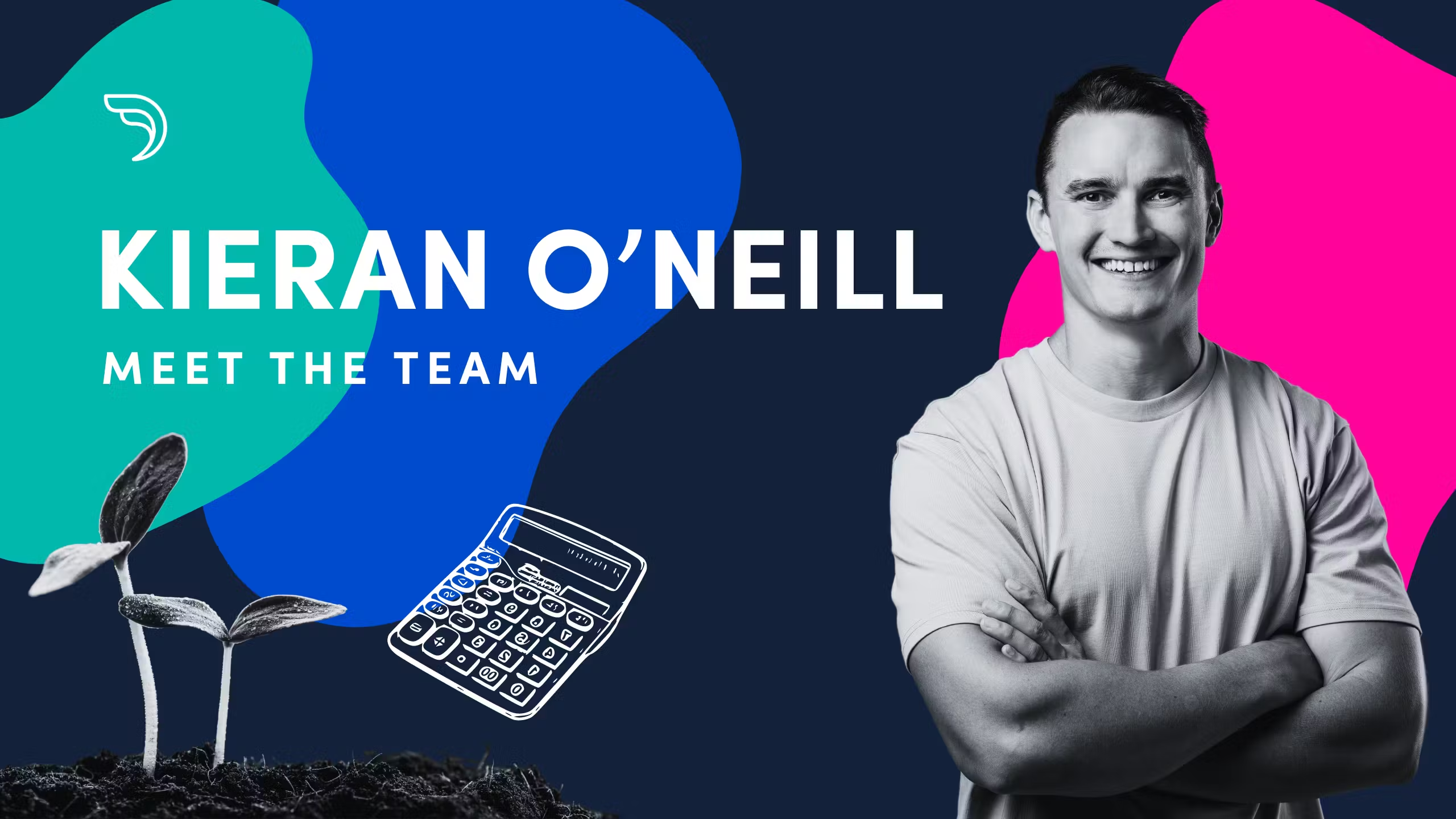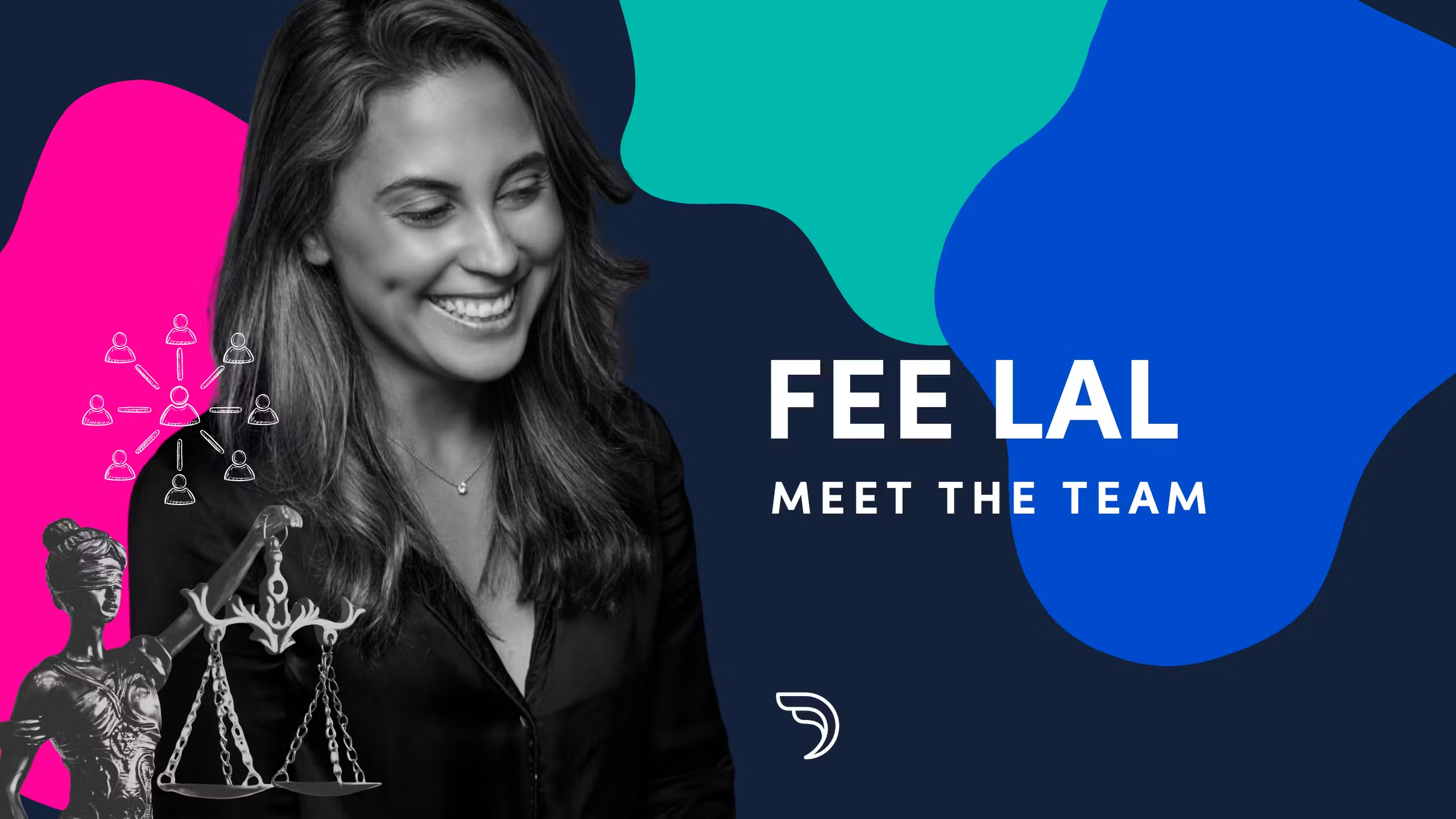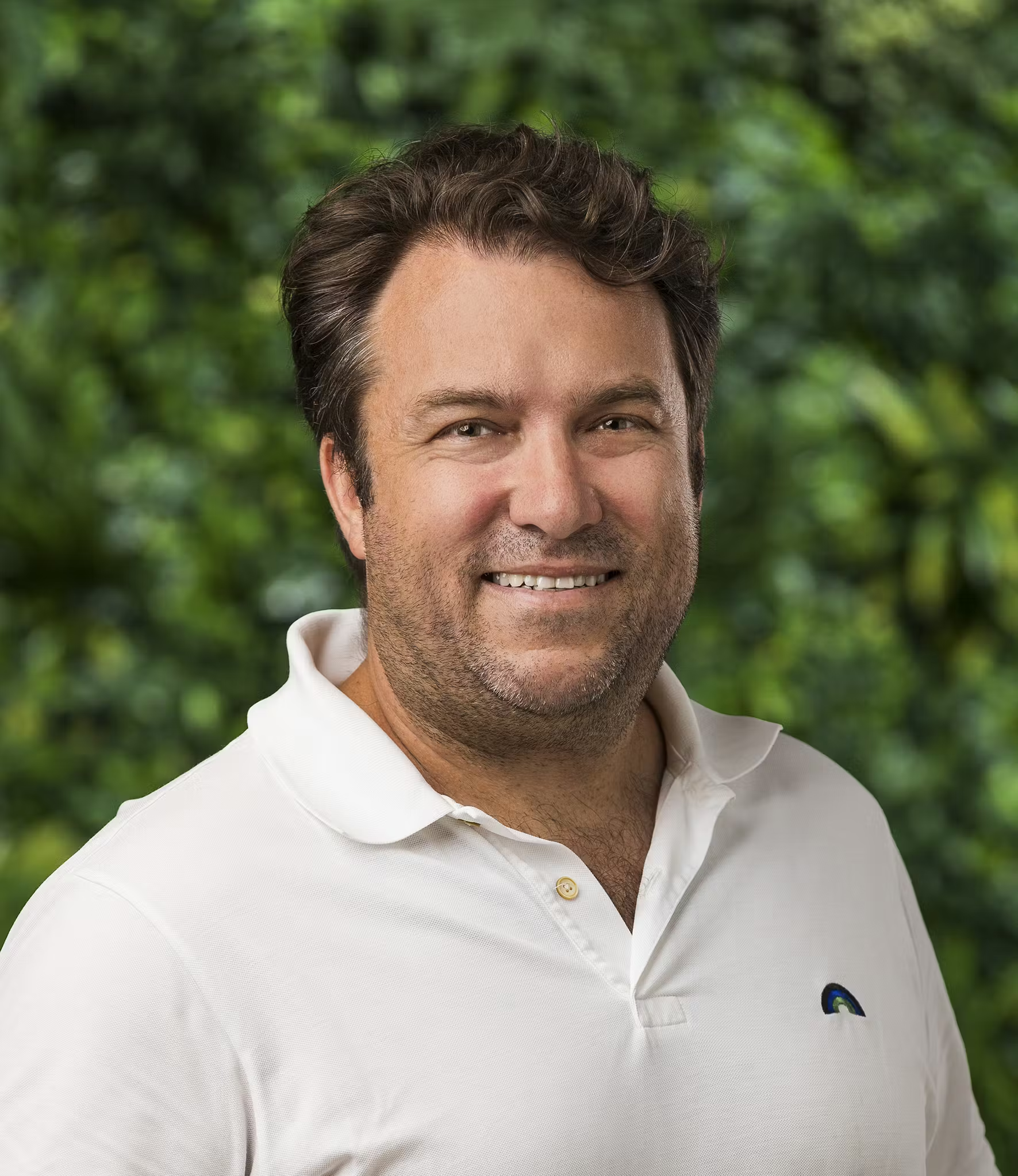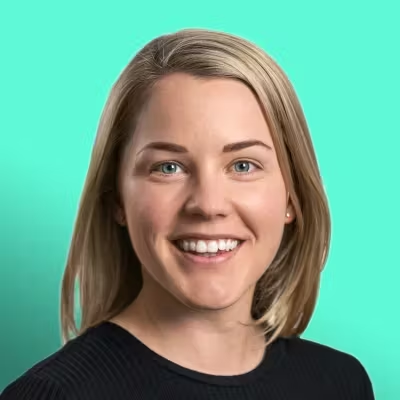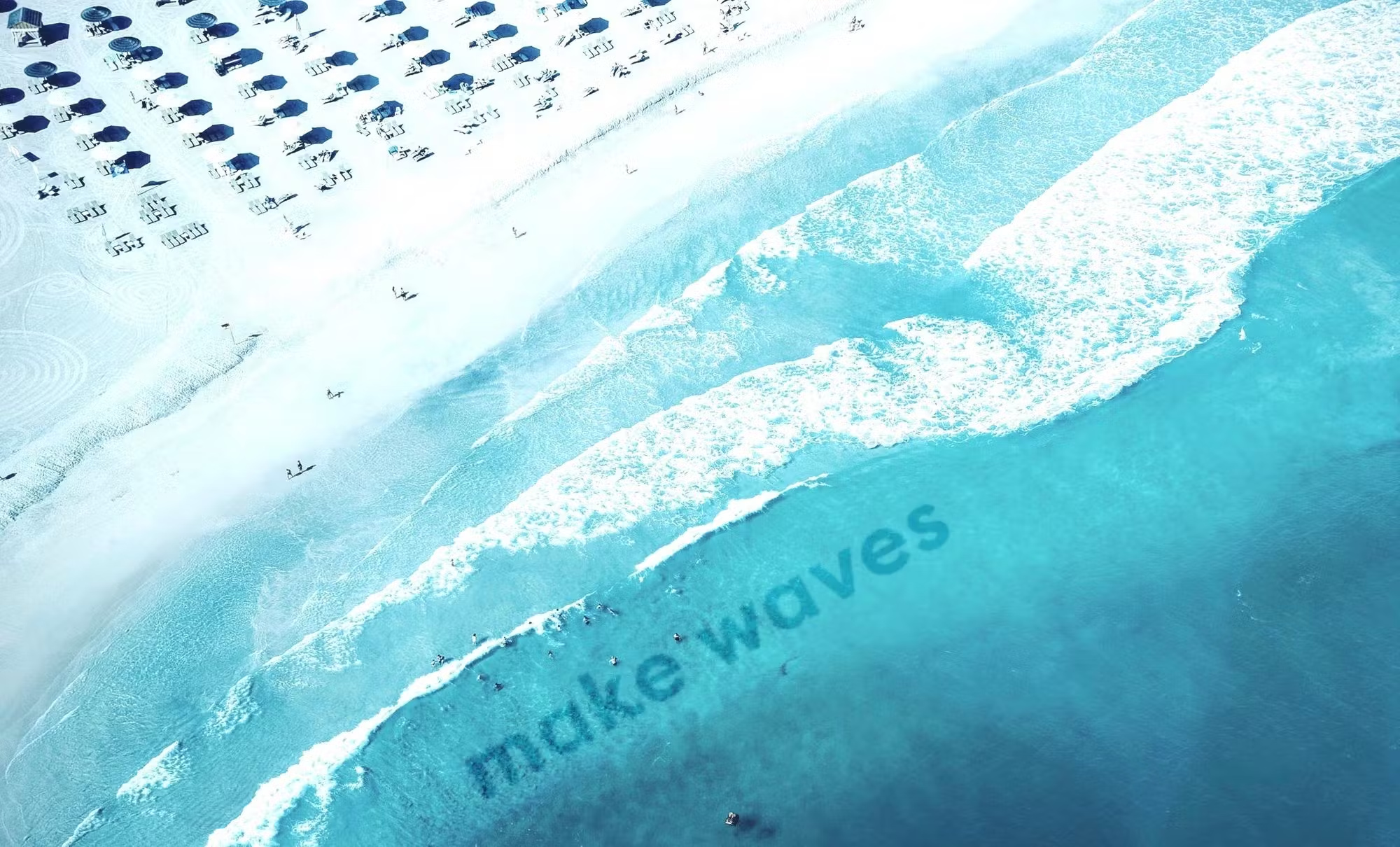My journey to get here
Much like Taylor Swift, I’ll categorise my life in eras. Here’s my professional journey in a nutshell:
- Student era: After completing a Commerce degree in Finance and Accounting at the University of Queensland, I began my career at KPMG in Audit and Transaction Services while getting my Chartered Accountant qualification.
- London era: I relocated to London and worked at Goldman Sachs in Product Control and Finance and at Lloyds Bank in PMO. I started the CFA program and passed Level 1, but I quickly realised it wasn’t for me.
- Sydney era: I got engaged in the Swiss Alps before settling in Sydney and transitioning to Macquarie Bank in project management. Wanting to escape the machine that is a large corporate, I moved over to a small private cloud and managed service provider called VMTech.
- Founder era: I co-founded Hometime, where I assumed various roles, including leading go-to-market teams, serving as CFO, managing acquisitions, and navigating team scaling.
- Investor era: In late 2022, I wanted to find that happy spot where I could put my financial expertise and startup background to good use, partnering with other founders to grow and thrive—that’s when I joined Tidal, and here we are!
As you can see, I’m a generalist with a foundation in finance. My finance background equips me with solid analytical skills to navigate complex problems. What you can’t surmise from my CV is my love of people. I’m all about understanding, relating to people, and building strong, authentic relationships. This also extends to connecting others—with just the slightest hint of common ground; I can connect with the right people at the right time if I see a mutual benefit. This blend of financial acumen, emotional intelligence, and a genuine love for connecting people makes me, me.
What I love about Seed
My passion for Seed phase technology investing springs from a profound appreciation for this particular phase of company building. There’s an undeniable allure to being part of a company’s early growth, where progress is swift, and the potential for impact is vast.
What truly captivates me is the opportunity to engage with diverse ideas, innovations, and technologies. As an investor, I leverage my expertise to collaborate with different visionaries, having a larger circle of impact and contributing to meaningful change.
Beyond the excitement of innovation and growth lies the human connection inherent in early-stage investing. Witnessing a founder’s triumphs and supporting them through challenges enriches the journey. Sharing in the highs and lows with passionate founders adds a profoundly gratifying dimension to the investment process, transforming it from a mere business endeavour into a deeply personal one.
Something I believe that others don’t
I believe in the profound importance of intuition in decision-making, a belief not everyone shares. In a world dominated by data and rational analysis, the intuitive, ‘gut feel’ is often dismissed. Combining intuition with rational thought leads to more holistic and satisfying outcomes, acknowledging the complexity of human emotions and experiences that data alone can’t capture.
If I really ponder this one, I see intuition as our own internal database—it’s all about recognising patterns. ‘Gut feel’ is our brains picking up on subtle clues and nudging us in the right direction based on things we’ve seen or experienced before.
Going from founder to investor
Well, for one, I deeply empathise with founders because I’ve lived that challenging and rewarding journey myself. I know how hard building a business can be and know the lingering feeling of having a million things to do. At the same time, I understand how profoundly fulfilling it can be and how it offers unparalleled rewards that are sometimes impossible to see at the time.
- I’ve lived the reality of sobering scenarios. I’ve lived losing 80% of revenue in a single month because of COVID-19, necessitating hard and fast strategic decisions that fundamentally changed the business model and our organisation at every level (including minimising headcount by 80 in a matter of weeks)—knowing that without these changes the business would have died in a matter of months.
- I’ve lived the need for optimism. As a founder, you are always optimistic; you need to be; otherwise, you would never have taken on the challenge, but maintaining the same level of optimism throughout the journey can be challenging. I’ve lived the balancing of setbacks with a healthy dose of perspective and pragmatism.
- I’ve lived culture starting with the founders. I know it can take years to build and moments to destroy. A great culture can influence things as important as employee (and ultimately customer) satisfaction, your ability to recruit great talent, that talent’s performance and productivity, and their ability to adapt with resilience.
My battle scars help me see around corners for my portfolio companies. My experiences building, managing, acquiring, and restructuring teams across GTM, Finance, and HR shape the way I partner with our portfolio founders to navigate the complexities of growth.
Characteristics of a top founder
- Resilience is key. More will go wrong than right, so you need the resilience to see it through and roll into the good times.
- Driven by “why”. The founder needs to champion the “why” because it’s ultimately why employees and customers choose to join and stick around. They’re all buying into the vision.
- Being coachable. You have to take on feedback and advice like it’s your job. You won’t know every answer, but if you speak to the right people and listen to those who have been there before, you might just find them.
- Customer focus. Customers pay the bills; you should focus on them. Some founders build what they think customers want but don’t spend enough time truly understanding what they need, what they do, how they do it, and why they do it.
How the world will change in 10 years
Mark my words: quantum computing will revolutionise the world. Quantum computing can process and analyse vast amounts of data more efficiently than classical computers, which can significantly enhance the capabilities of AI and machine learning algorithms. This could lead to advances in natural language processing, image recognition, and predictive modelling. Given the amount of quantum computing investment, advancements, and activity, the industry is set for a dynamic change similar to that caused by AI – increased performance, functionality, and intelligence. This also comes with the same challenges presented by AI, such as security, as outlined in the recent Quantum Safe Cryptography article. But just like AI, quantum computing is coming. You might say that quantum computing is where AI was in 2015, fascinating but not widely utilised. Fast forward five years, and AI has been integrated into almost every platform and application. In just five years, quantum computing could take computing and humanity to a new level of knowledge and understanding.
What keeps me up at night
Aside from my reoccurring nightmare of getting sent a Microsoft Teams meeting link, the widening inequality between those with and without access to technology keeps me up at night. Ensuring equal access and digital literacy is vital to preventing social and economic disparities. Governments must intervene to make technology and education widely available, especially in schools. Starting tech education early is critical to nurturing a world-class technology sector and boosting our economy.
That being said, I stay awake thinking about how technology impacts the generations of tomorrow. Outside of work, my passion lies unequivocally with my family. I am immensely proud to be the parent of two delightful little girls, aged 5 and 3, who are at the very core of my universe. They are not just an integral part of my life; they serve as my anchor, providing a perspective that transcends the daily hustle and bustle. As a parent, I’m deeply concerned about the pervasive influence of technology in our daily lives. I yearn for a future where my children can uphold genuine, meaningful human connections, recognising their importance for our mental well-being. While advancements like VR and AR continue to shape our world, I worry that they may further consume our precious time and divert our attention from what truly matters—cherished moments spent with loved ones.
What excites me about Australia’s tech scene
The Australian tech landscape is still in its infancy, with substantial growth to come. Despite being a newer market than established tech hubs like the US and Europe, Australian founders and businesses have demonstrated remarkable resilience, often having to punch above our weight to be recognised internationally. As Tidal partner Georgie pointed out in her article in Startup Daily:
The perception that Aussie companies excel in capital efficiency and early monetisation remains unchanged. A slight advantage is that we’ve created a reputation that we can achieve significantly higher annual recurring revenue (ARR) levels at the Seed and Series A stages than our American counterparts raising at similar stages.
Because of the size of the Australian market, founders adopt a global mindset from day one. They know that to reach the scale required, they‘ll need to think beyond Australia. This collective mindset underscores the ongoing evolution of the tech industry in Australia, signalling promising developments on the horizon.
My investment wish list if I had a time machine
I could say Apple because I’m a massive fanboy, and it would have been a very lucrative call if I had invested early on. Or I could say OpenAI because it is so hot right now and is providing some revolutionary products. But I’m going to pick Notion, the platform I use almost every day, and it has truly revolutionised how loads of people work. Notion epitomises coolness with its sleek UI and spot-on UX design.
The advice I live by
Don’t ask, don’t get. You’ll be surprised at what answer you might get.
My first founder question
What problem are you solving, and how are you solving it?
If you’re a visionary founder ready to chat about what problem you’re solving, then we should chat!
